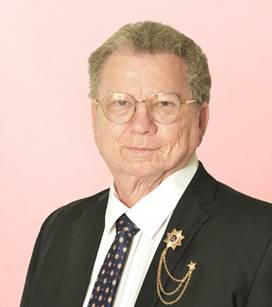Suspension of education agency boss Adagba, legislative pushback and governance crisis in Nigeria’s Benue north

Nigeria
The recent suspension of Dr. Grace Adagba, Chairman of the Benue State Universal Basic Education Board (SUBEB), has sent ripples through the corridors of power and public discourse in Benue State.
While publicly framed under the guise of promoting transparency and accountability, a closer examination reveals a complex web of allegations, political undertones, and administrative challenges that raise serious questions about governance in one of Nigeria’s key states, Benue.
Earlier in the month, the Benue State House of Assembly passed a resolution to suspend Dr. Adagba for six months, citing the need to investigate her activities at SUBEB. However, Governor Hyacinth Alia later upheld the suspension but reduced it to one month, signaling a nuanced power play between the legislative and executive arms of government.
This divergence not only exposes underlying political tensions but also casts doubt on the true motivation behind the suspension.
Despite the official narrative emphasizing accountability, the exact nature of the alleged irregularities remains largely undisclosed. Sources within the Assembly point to concerns over financial mismanagement, questionable contracting decisions, and lack of transparency in the administration of educational resources. These allegations, though yet to be formally proven, suggest troubling governance issues that could undermine the education sector’s integrity in the state.
The suspension of Dr. Adagba was accompanied by similar sanctions against other key officials, including the Executive Chairman of Otukpo Local Government Area,Maxwell Ogiri, and the Executive Secretary of the State Lottery Commission, Michael Uper, who were both suspended for one month.
This coordinated legislative action reflects wider dissatisfaction with public officials and hints at systemic governance failures across several government agencies.
Further complicating the political landscape, the Benue State House of Assembly yesterday declined to confirm two commissioner nominees put forward by Governor Alia in recent weeks. The Assembly’s refusal was directly linked to petitions against the nominees and other concerns about transparency and governance standards, echoing the reasons behind Dr. Adagba’s suspension.
This legislative pushback signals an assertive House determined to hold the executive accountable and to enforce stricter vetting of public officeholders.
For ordinary citizens, these developments translate into worries over the continuity of essential services, especially in the education sector where SUBEB plays a crucial role. Parents, teachers, and community stakeholders fear disruptions that could affect school programs and the welfare of students across Benue State. The suspension has therefore stirred anxiety about how governance lapses in public institutions directly impact educational outcomes.
Governor Alia has publicly reaffirmed his administration’s commitment to due process and separation of powers, insisting that service delivery must continue despite the leadership shake-ups. However, critics argue that the quick reduction of the suspension term casts doubt on the seriousness with which these allegations are treated and raises questions about political considerations influencing the process.
Political insiders suggest that this episode exposes deeper struggles between the executive and legislative branches over control of appointments and oversight mechanisms. While the Assembly positions itself as a watchdog combating corruption and inefficiency, the executive is wary of what it perceives as legislative overreach that threatens administrative stability.
The broader implication of these events is a stark reminder of Benue State’s ongoing governance challenges—weak institutional checks, opaque administrative practices, and the persistent influence of political patronage. The suspension and commissioners’ confirmation standoff highlight the urgent need for systemic reforms that go beyond punitive actions toward sustainable improvements in public service.
The suspended and rejected officials face professional uncertainty and reputational damage, while citizens watch closely, hoping for the restoration of integrity in governance. The unfolding investigation into Dr. Adagba’s tenure could set important precedents for transparency and accountability, or conversely, deepen public cynicism if not handled with fairness and openness.
As the dust settles, the people of Benue await clarity on the scope and findings of the ongoing probes, as well as decisive actions that will either reaffirm trust in public institutions or embolden skepticism. This is a critical moment that will define the legacy of Governor Alia’s administration and the future trajectory of governance reforms in the state.
In conclusion, the suspension of Dr. Grace Adagba, Maxwell Ogiri, Michael Upper and the legislature’s rejection of two commissioner nominees are intertwined episodes revealing a governance crisis in Benue State. The narrative goes beyond procedural discipline to expose persistent political battles, administrative weaknesses, and citizens’ unmet expectations for transparency and service delivery. Whether this turbulence catalyzes genuine reform or devolves into partisan wrangling remains the pressing question for Benue’s future.









